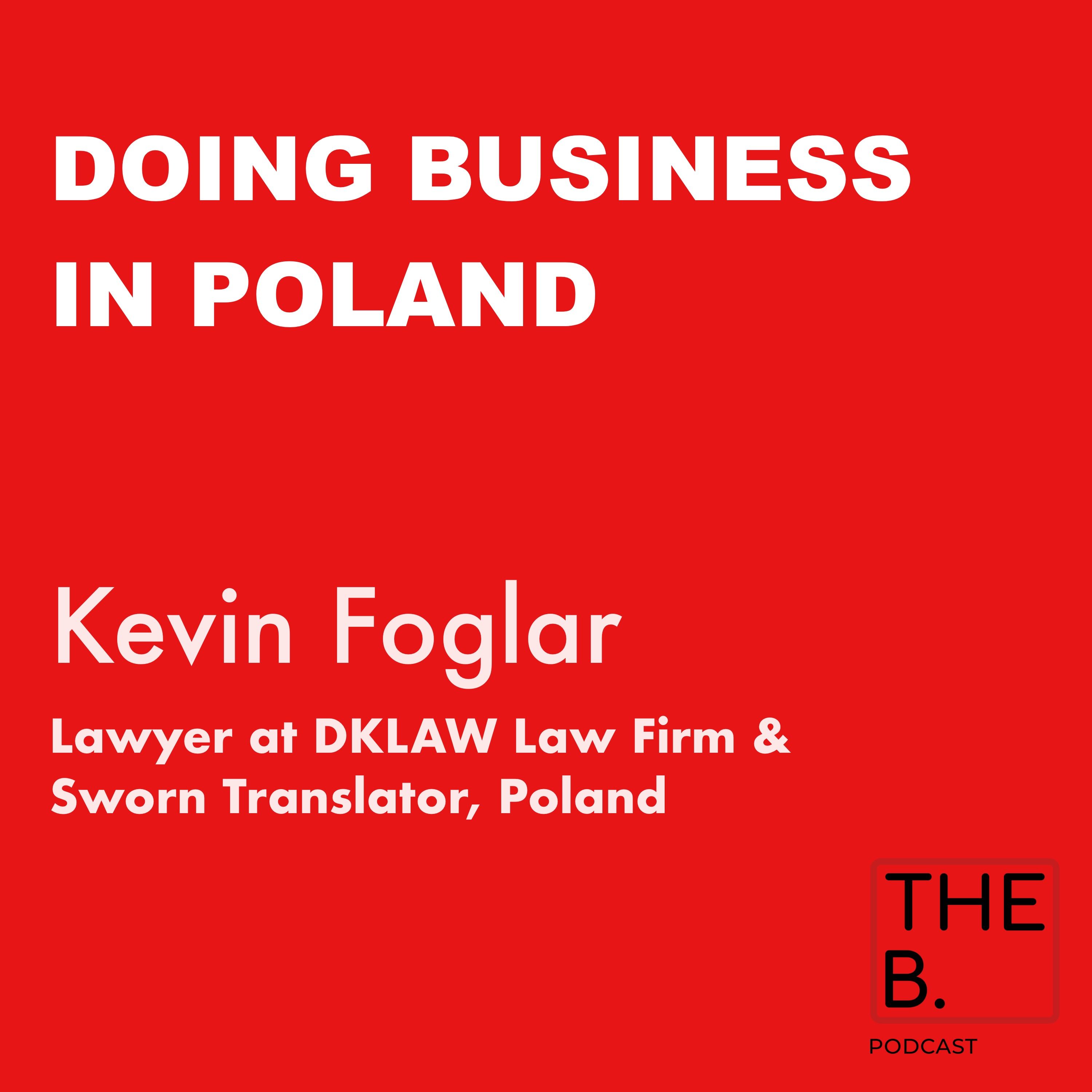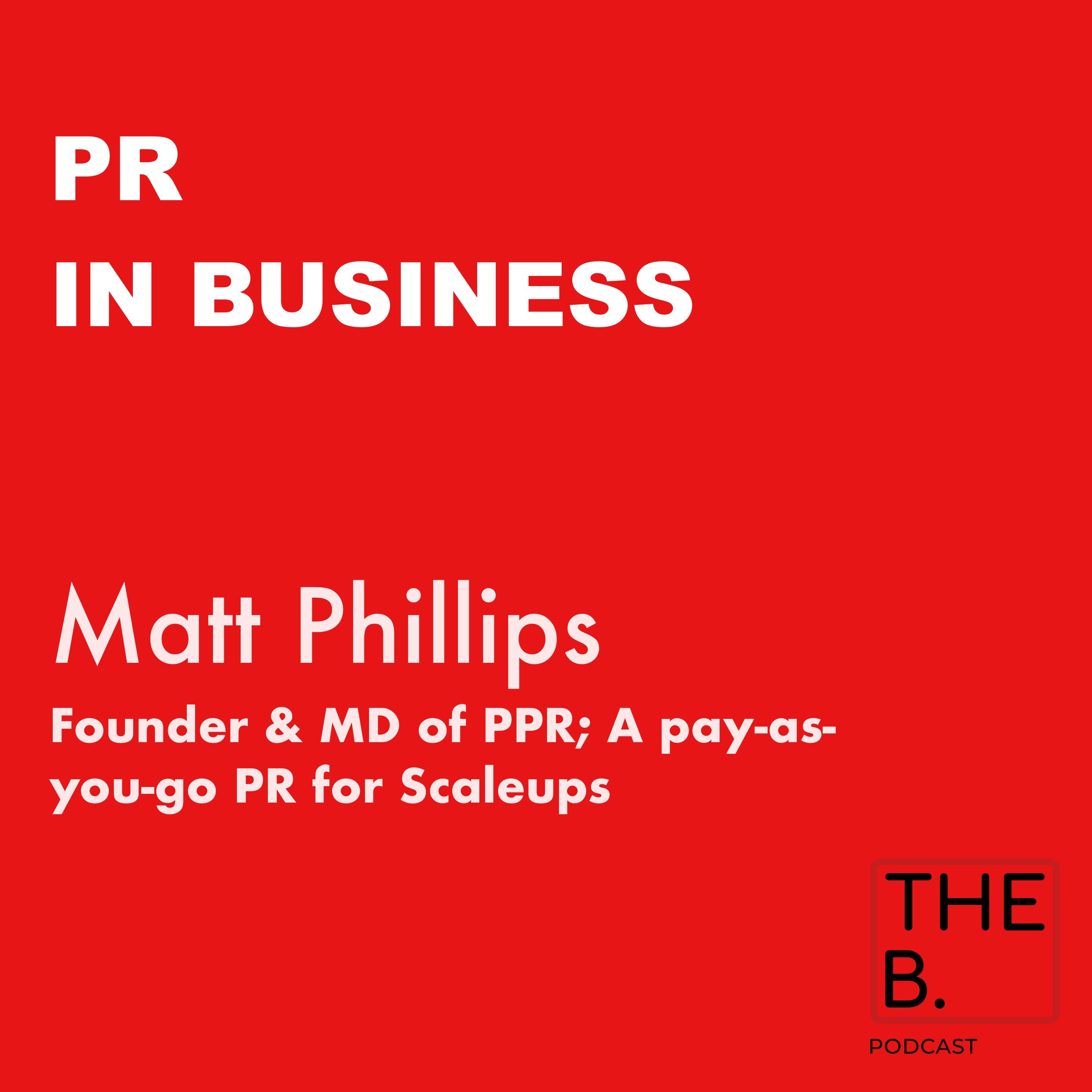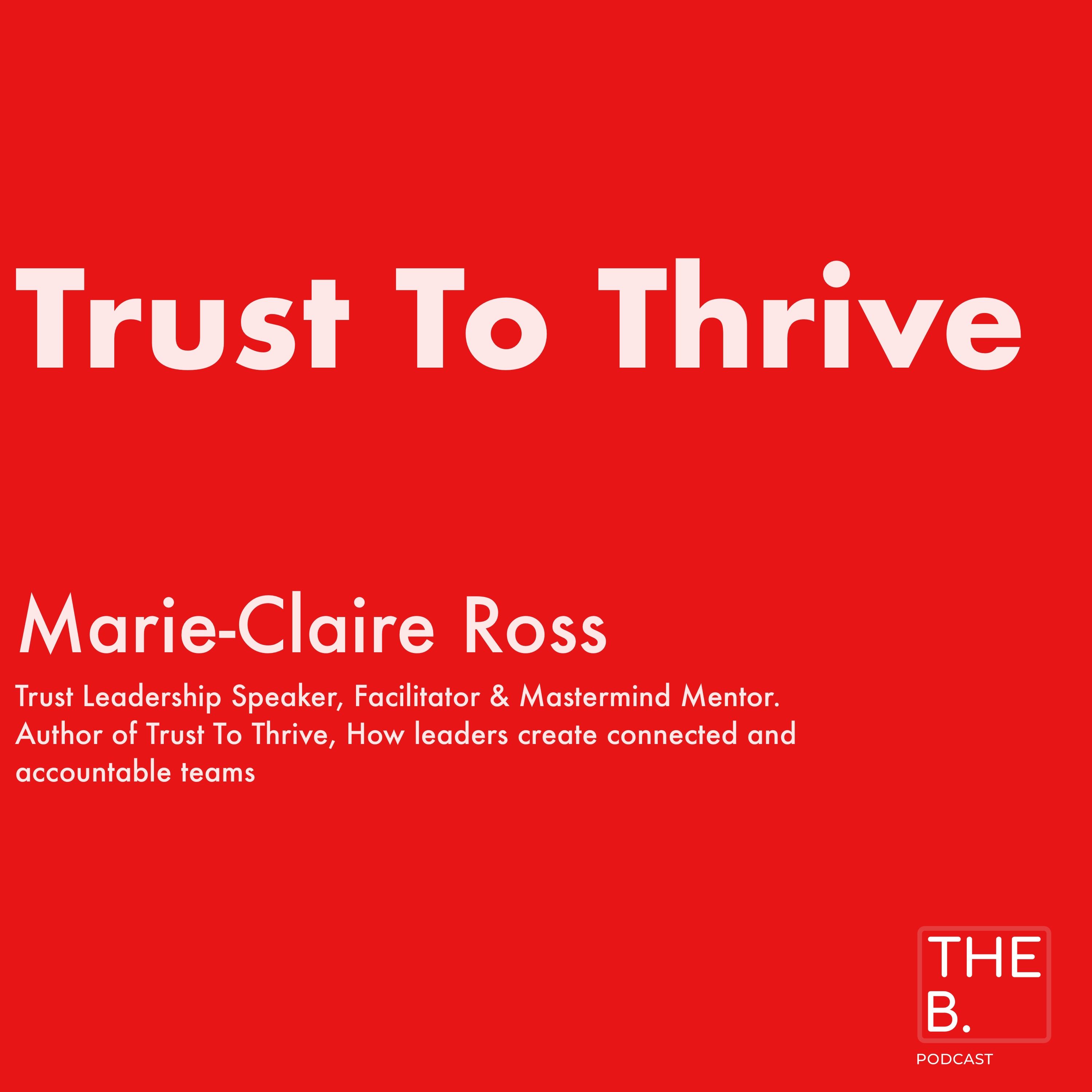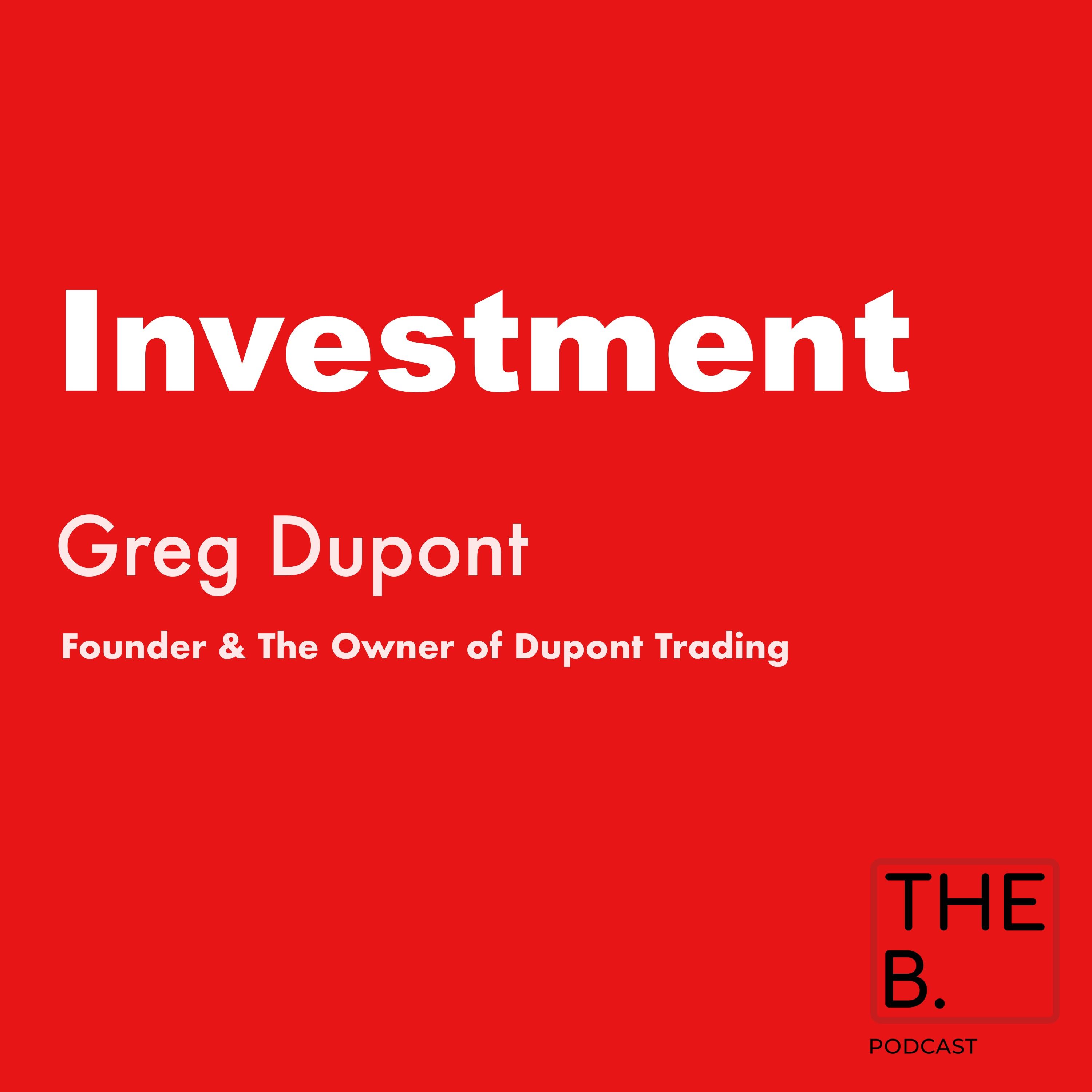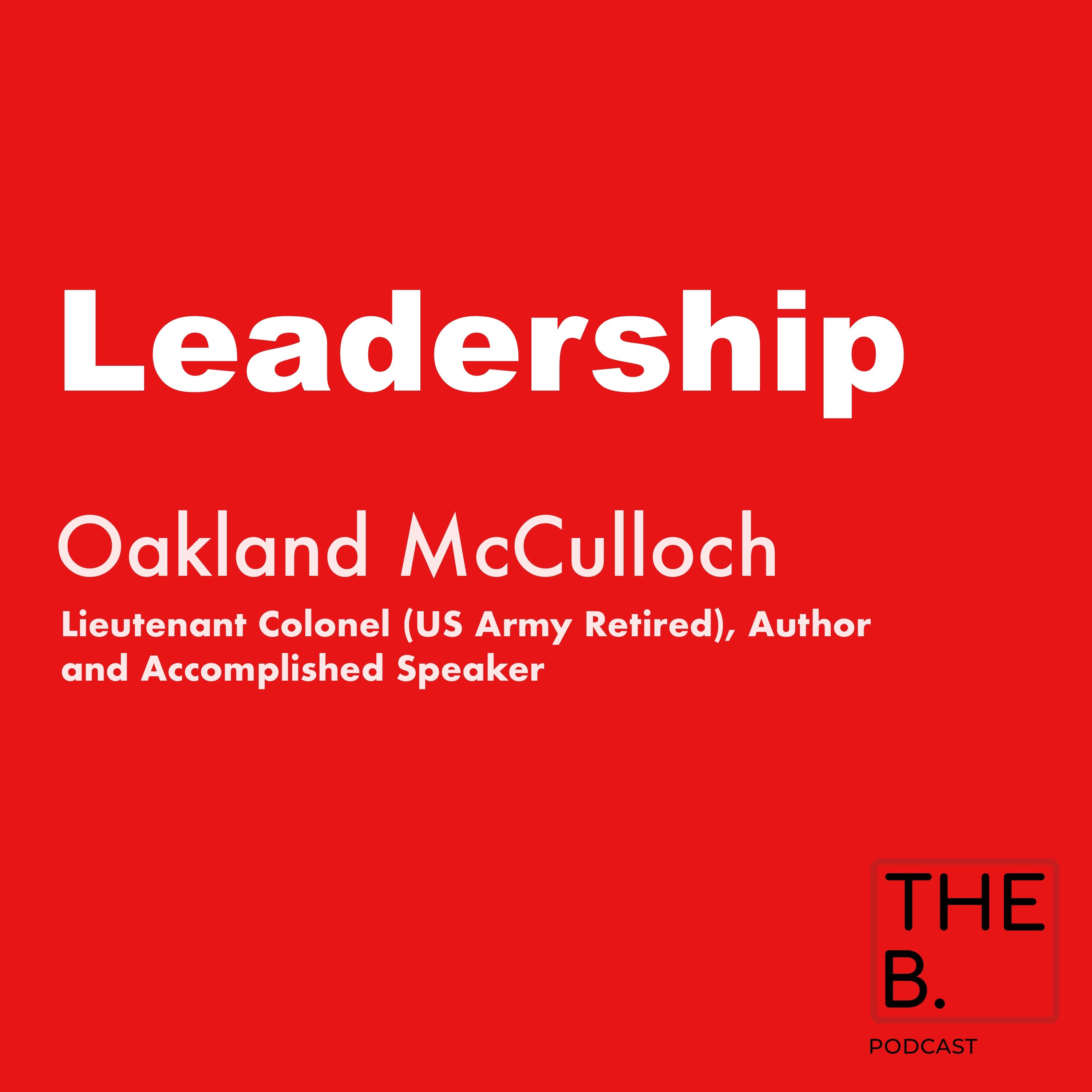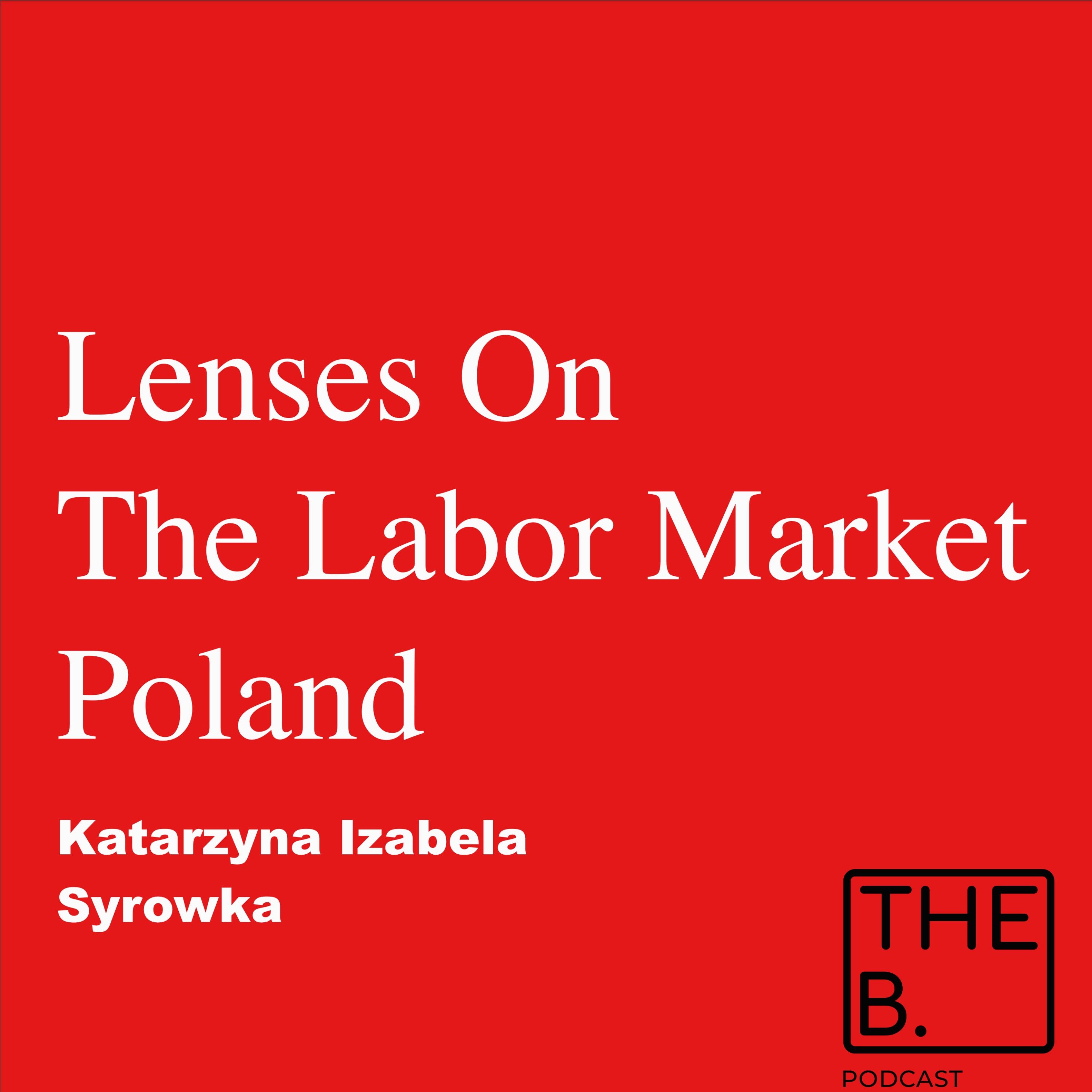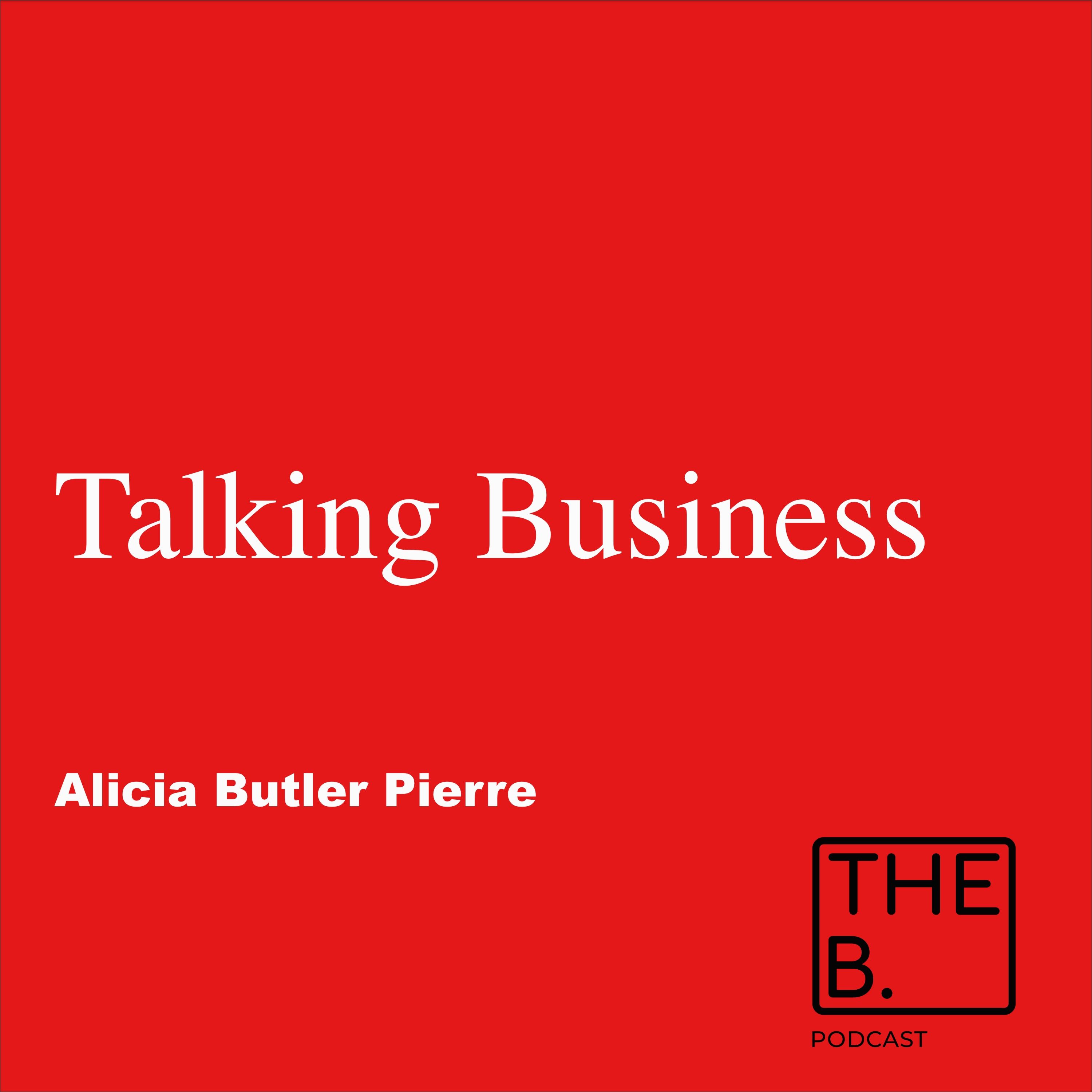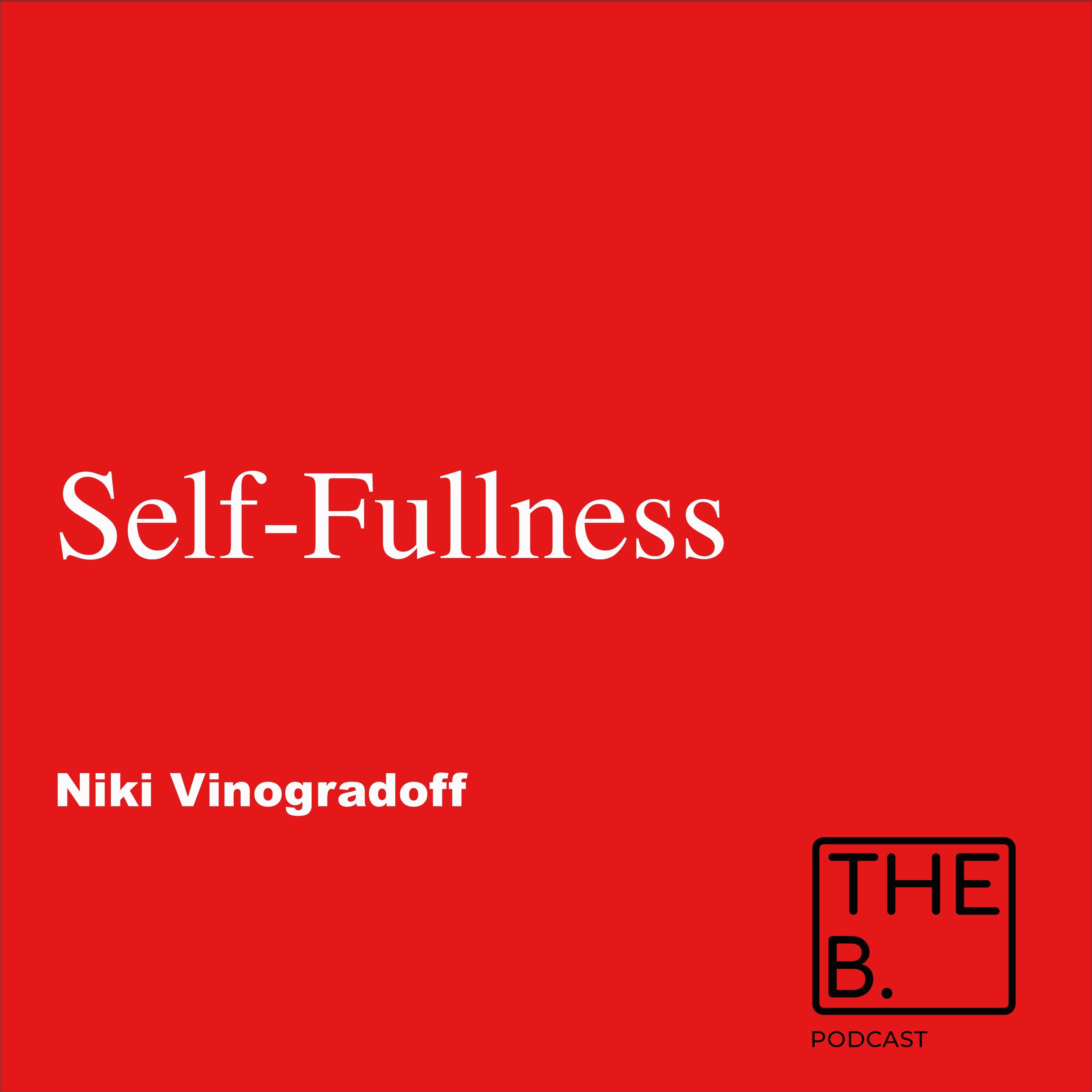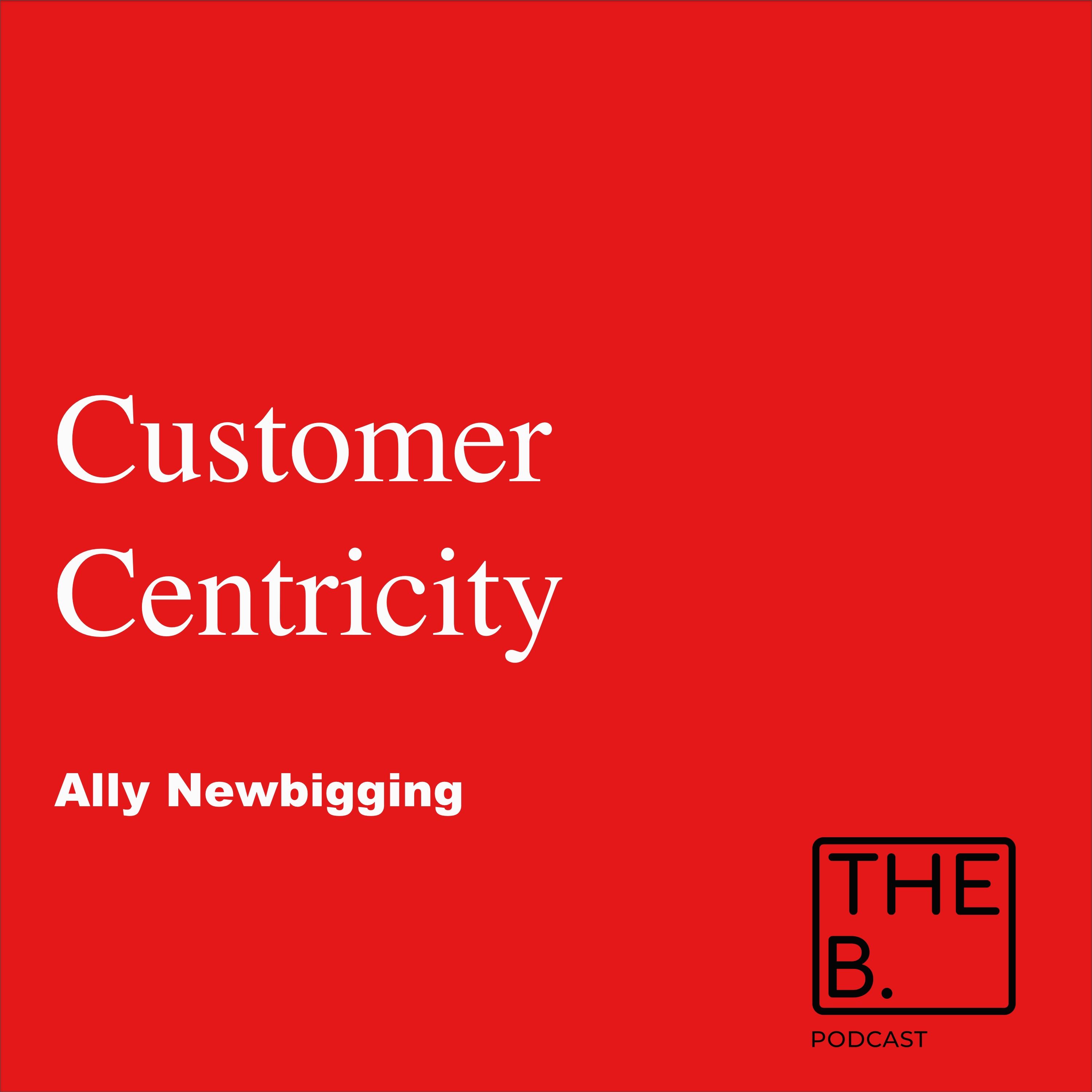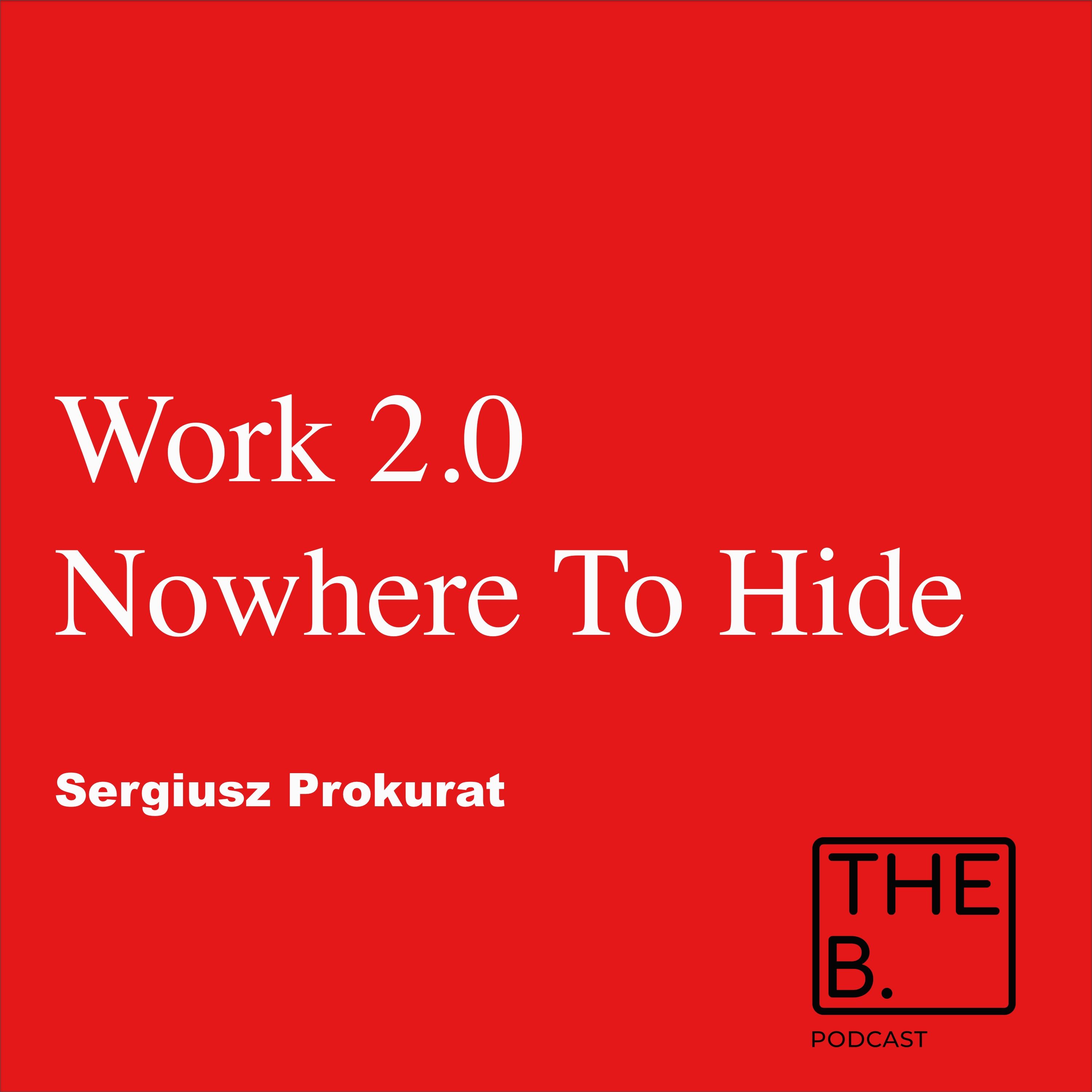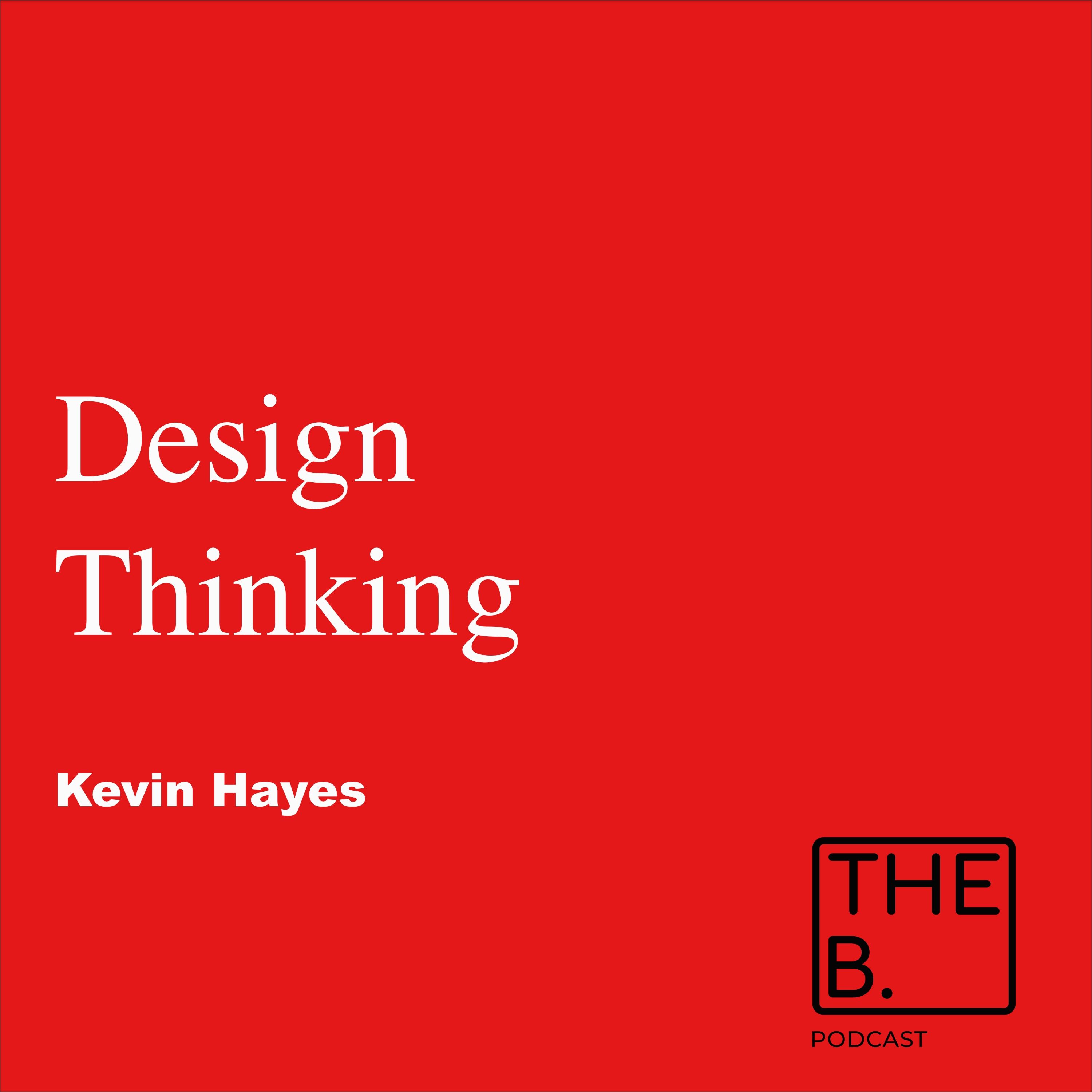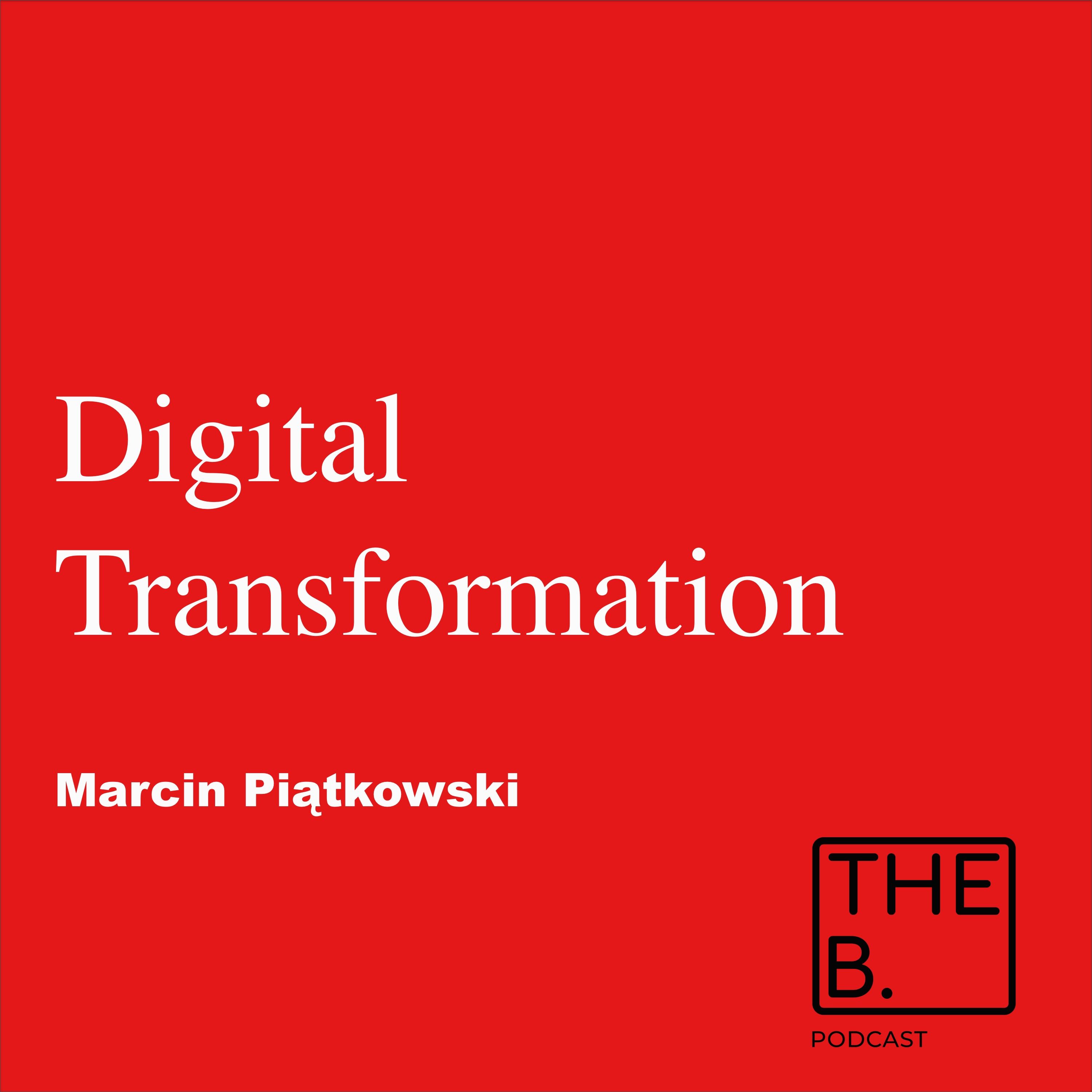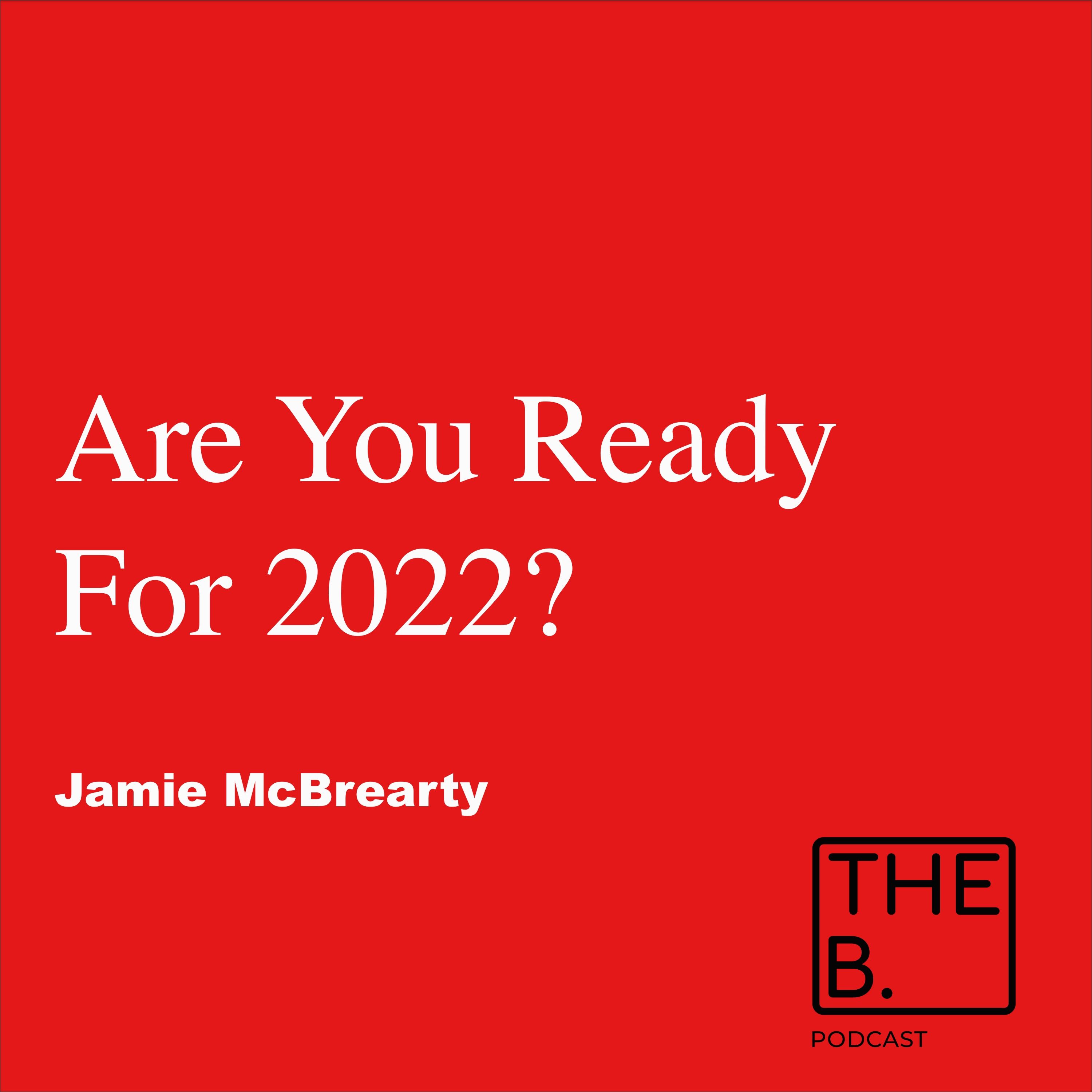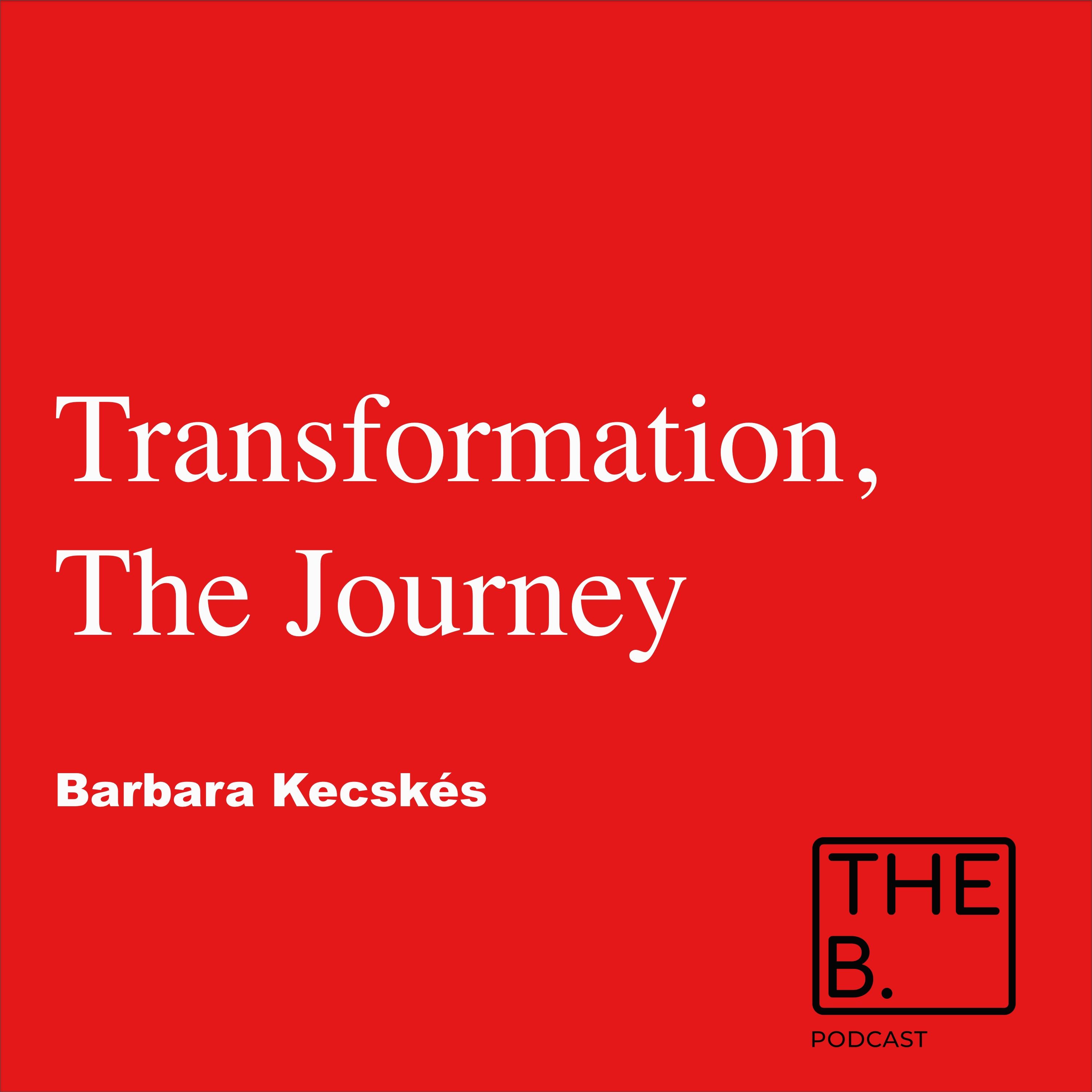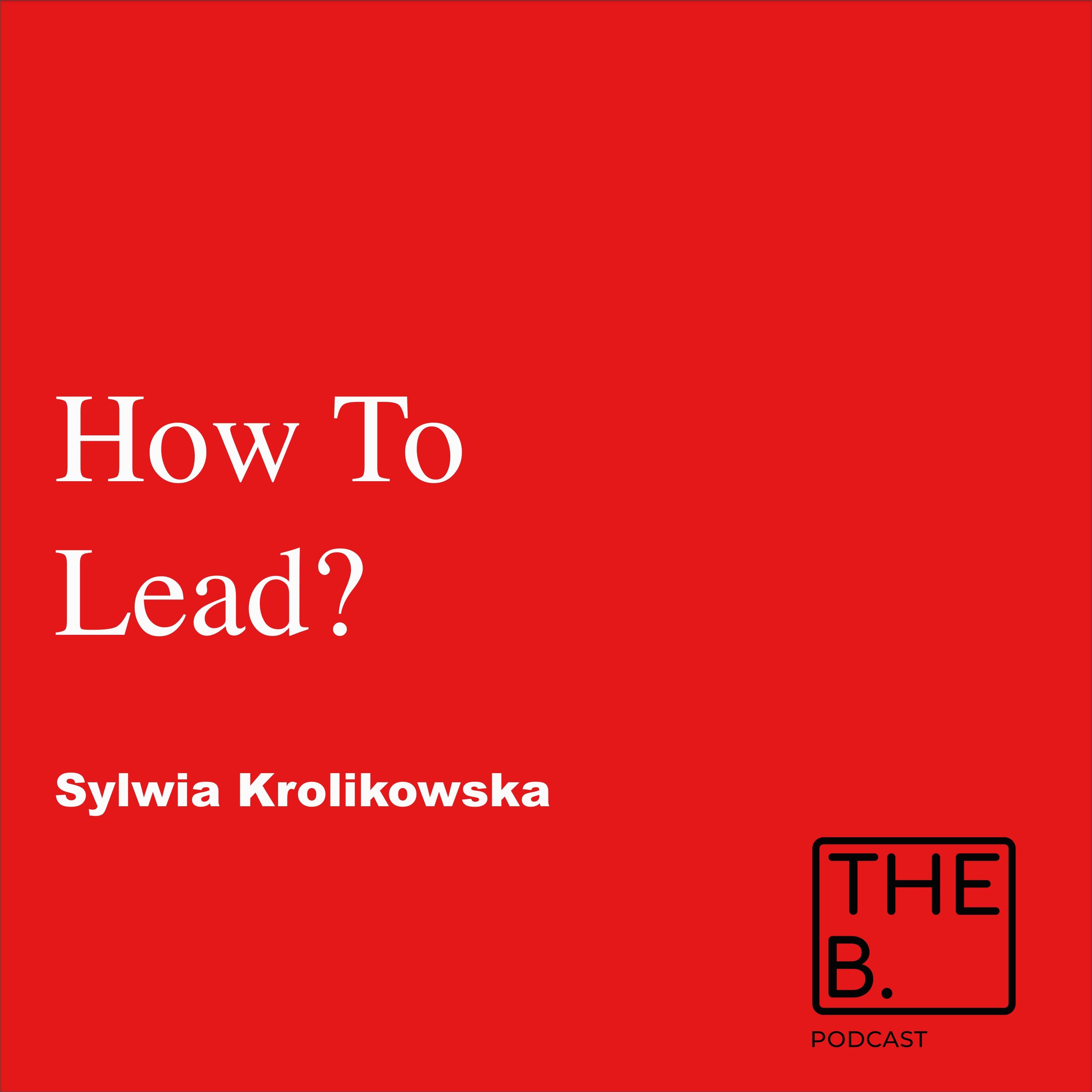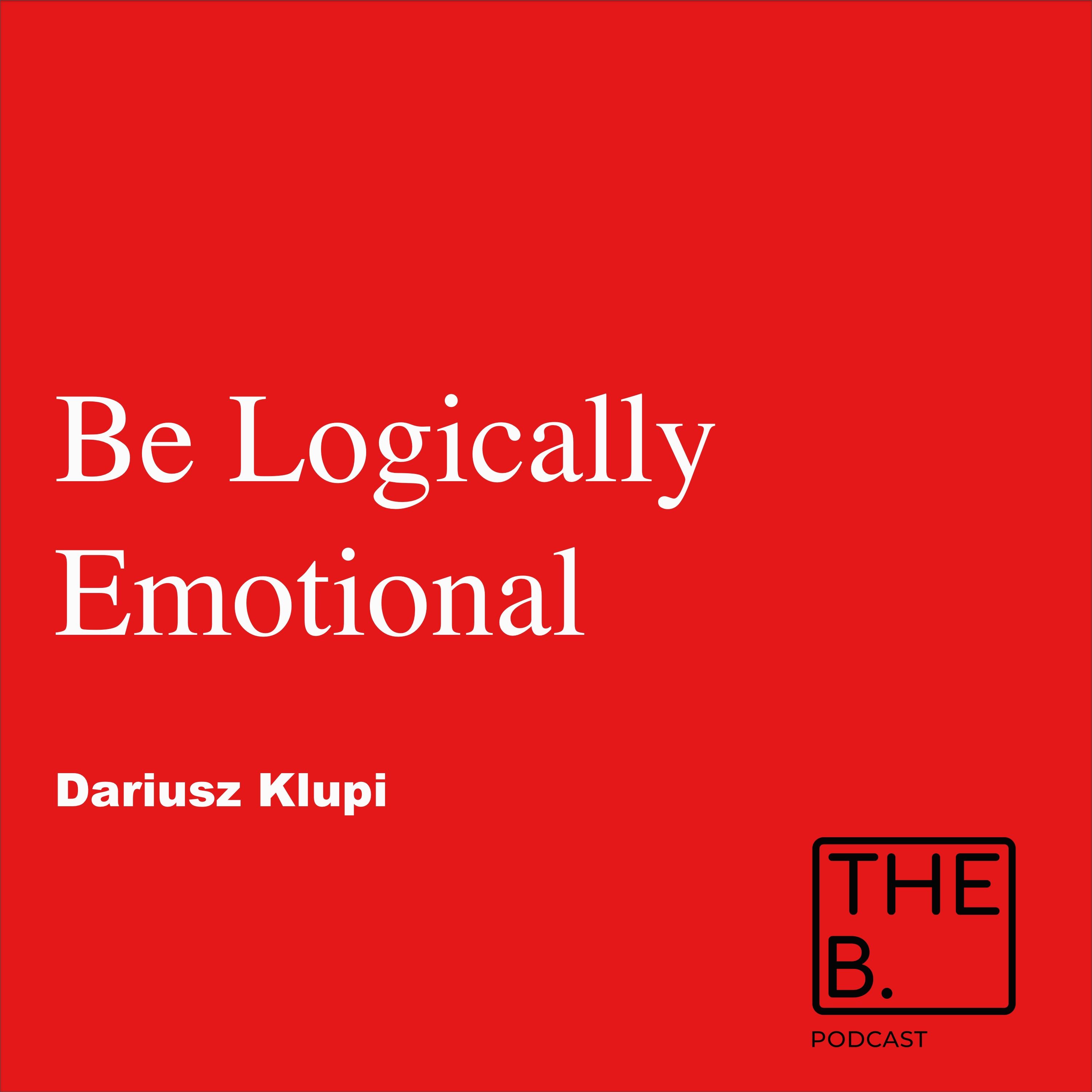Discover THE B
THE B

52 Episodes
Reverse
Welcome to a bonus episode talking about doing business in Poland. My guest is Kevin Foglar, a lawyer at DKLAW Law Firm &Sworn Translator In Poland. In this episode, you will learn more about: Why should anyone short-list Poland as a place to do business? How hard/easy to run a business in Poland?Let’s talk about the legalities of starting a business; what are the key things to be aware of? Let’s talk about digital assets, whether that is crypto or NFT, If I am a foreigner coming to invest in Poland and looking at a legal office to help me out, where should I look, and what should I look for to determine if I have found the right partner? ----------------If you are an entrepreneur that thinks about doing business in Poland, I highly recommend reaching out to Kevin and DKLAW crew.Kevin email, DKLAW Website For suggestions, comments, and feedback. you can email Ben
In this episode, you will learn more about:Presentations, a quick debate on the question: Are the look and feel of a presentation (or) the business's quality and reputation play an essential role in accomplishing satisfaction?PR, how could it go wrong? Matt shares his thoughts on Boris Johnson's story and how he and his team managed the birthday scandal. Spoiler, there is a checklist to avoid doing a lousy PR!For a startup, what is the right time for a startup? What to start investing in PR? And how much media attention should a company get relative to its peers? Matt shared great insights that I think should be considered as a blueprint for any business - it is given for free!Tech-enabled PR, how would that look like? Matt told the story of how technology doesn't matter but thinking about how the materials have been consumed is critical.There are many channels to be used for PR; are there underrated (or) overrated? Matt was controversial in his answer!What is the best way to build personal branding? Matt again brilliantly shared an excellent blueprint to follow!What does Matt do, and how can he help your business?----------------------You can follow and check Matt's work on LinkedIn Matt's website, make sure you check his newsletter or email himYou also can reach out to Ben
Welcome to a new episode of THE B. Podcast, and this time our host Ben Esmael will be talking to Marie-Claire Ross. A Trust Leadership Speaker, Facilitator, and Mastermind Mentor is also the author of Trust To Thrive, How leaders create connected and accountable teams. In this episode, you will hear us talking about how crucial it is to build trust through the organization for the organization to be ready and face various challenges head-on. This episode's choice came from the belief that trust & faith in each other have been neglected or taken for granted when working in the same space. Still, mistrust started to surface when all went online, disrupting business and forcing leaders to scramble to find a solution. Listening to this interview, you will learn more about: 👉 Great resignation, or what you called it, a time for imagination. Are we asking the right questions?👉 Trust, what does that means in a workplace, and how important is it for businesses to thrive? 👉 How do we build a culture of trust throughout the organization? What are the key enablers? 👉 How can leaders create accountable teams mainly in a remote working environment? 👉 What are the critical enablers to enhancing leadership visibility? 👉 Tell me about the stages of executive team building. --------------------- Check out Marie-Claire's work at Link.If you'd like to be a guest or suggest a guest, please reach out to Ben at Link - also, visit Ben's website at Link.
Welcome to a new episode of THE B. Podcast; in this episode, Ben Esmael is talking technology with his guest Noah Healy. By watching the interview, you'll learn more about:The role of mathematics, data scientist, and technology What is the problem of our world? Is it a broken system or a bad technology? Digital currencies are not solving the right problem What is happening to UST? The crash isn't the first lie Privacy and social scorecard, reciprocity is the problem! CDM, a new invention, the impact is massive! Have we learned the lesson? Technology can be nasty!NFT is mostly a Ponzi scheme; the technology has potential but is not without limitations. ----------------- You can reach out to Noah on his LinkedIn profile. Check out Ben's website: If you'd like to be a guest or have Ben as a guest, reach out
Watching this session, you'll learn more about: 👉 What is happiness? 👉 How could anyone develop self-awareness? 👉 How could anyone navigate ambiguity, see through all that noise, and focus on what matters? 👉 As humans, we would face psychological pressure and wrong or even traumatic experiences. What is the best thing to do for healing? 👉 Is doing what you love (or) doing what fulfills your purpose the definition of success? Feel free to reach Michael S. Seaver on: LinkedIn | Instagram | Website Also, check out his book, which is one of my favorite reads this summer: Apple books: Audiobooks (it is just fantastic to listen to this while training) If you want to be a guest or talk to Ben, check the link
At the date of releasing this episode, Goldman Sachs forecasted that Brent crude oil price might reach $135 per barrel in the second half of the year, Goldman Sachs bank predicts. This is $10 more than analysts expected in their previous forecast. The biggest problem, which can influence the growth of oil prices, is the growing deficit of this raw material on world markets. According to the same report, Goldman Sachs analysts enumerate several reasons for changing the oil price forecast. Firstly, a record sale of the Strategic Petroleum Reserve, i.e., emergency oil stocks belonging to the United States, was recorded. This means that U.S. oil inventories have declined.The second major factor is the changing economic situation in China. Covid restrictions in that country have led the oil market to its first surplus since June 2020. However, Beijing's low number of new Covid-19 cases allowed the capital on Monday to back away from the tight restrictions. As a result, Chinese demand will grow, and oil surpluses will run out.According to the report, the future oil price will also be influenced by the situation in Russia. There were relatively small declines in oil exports from Russia in April and May, but the country will reduce production. Russian oil production will fall by 0.5 million barrels per day after the European Union embargo.BUT: is it that true? Are we doing the right thing or the easy thing?Emmanuel and I spent some time talking about the different factors that influenced the energy market and took a bit of a different approach to tackling the problem. We both believe that starving oil companies is the easy solution that isn't working and that achieving efficiency is the way to go. Disclaimer: non of the content in this video constitutes investment advice.To reach & find out more about Emmanuel:LinkedIn - Twitter To get in touch with Ben - Link
A new episode with Olga Nesterova, founder of Onest Network, a marketing consulting company and a game-changer in content creation and monetization space as we know it today,She will be talking with BEN ESMAEL about marketing strategy and how it changed after COVID? How could leaders drive more value from their marketing strategy in 2022, technology-enabled marketing and the Recession's impact on marketing, and how to navigate that challenge? To get in touch with Olga:LinkedInInstagramTo join the content creator network on Onest NetworkTo get in touch with Ben. Linkedin Instagram Websiteemail
To get in touch with Greg,Twitter: Website: 4X4 course: To get in touch with Ben.Linkedin: Website:email:
In this episode, we will be talking about leadership, and we will cover topics like: • Leadership style, the hierarchy, top-down, bottom-up leadership. What lesson should we learn from the military?• Promotion: How could we reward people fairly and transparent on why.• The generation gap is a challenge businesses face by either having elders managing youngsters or the other way around it. • Hiring the right people. What is the secret sauce?• Nothing could work without trusting the team—any tips on strengthening that front from a leader's perspective.• Top three must-have skills in tomorrow’s leaders?• Managing remote teams - how should we play it?----------------------------------------------------Get in touch with Oak: LinkedInWebsite EmailBook - Amazone Store Get in touch with Ben: LinkedIn WebsiteEmail
"JEDEN TELEFON" or "One Phone Call" - this is how you become a mentor. As an intro to who you are. Could you tell us about that story? We hear a lot about "The Great Resignation," what are you reading for the Polish Labor Market?In Poland, what do you think is the main driver for people to start looking for a new job (or) drop the job altogether for a break? What does that mean for business? The key areas companies have to invest in in 2022, maybe the next three years? In your "Future " report, you talked about the Hybrid working environment and that employees love it, especially youngsters. No doubt, the model brought a lot of benefits in terms of flexibility, but sometimes I wonder what the trade-off is. What is the downside? If we draw a picture of 20022 optimal leaders, what are the key traits and characters they should have?What is your plan for 2022?Quicks: Leadership AcademyAutomation in businiess Executive MBATo reach out to Kasia, LinkedIn - Website To reach out to Ben: LinkedIn - Email: ben@benesmael.com
In this episode, we have talked about: The secrete sauce for individual success Supply chain challenge and how to fix it Business continuity plan why is that important? Cybersecurity Consulting businesses What kills transformation projects? Communication / Change Management Performance Management Automation You can reach out to Alicia at:LinkedInAlicia's websiteEquilibria websiteAlicia's podcastYou also can buy her book at
👉 Talking points: 1️⃣ Sleep and how important it is. How could anyone practice good sleep? 2️⃣ Mindfulness, breathing exercise. How to overcome the anxiety of war, Monday morning or a tough day? 3️⃣ You lived a period in a Buddhist meditation center. Why did you do that, and what was the thing you learned there that changed your life forever? 4️⃣ Seven points of focus 5️⃣ What keeps you going, Niki, the person, not the coach. 6️⃣ Let's talk about planning and goals; what is the most common mistake people make while planning? 7️⃣ From time to time, we feel the urge to do some physical activities to bring ourselves to a balance point. Why and how? Find Niki on LinkedIn:
Introduction: You are a customer services expert, and you made a promising career where you held multiple roles in client support. You are currently a sales representative at Rossum. I also can't forget, you have made a career in music (more on that later). If we talk customer-centricity, what is that, and what is the best way to measure it?During COVID, it was a mess for business and a whole new ball game supporting their clients.Since you made a career in customer services and sales, I was thinking about this; before Covid and remote or hybrid working environment, non-sales employees usually had some sightline to customers. However, as time marched on, non-customer-facing teams lost their connection to customers. How to fix that?Since you work in Rossum, a tech business. How could your customers master digital transformation while not losing touch with their customers?How much could be automated in our back-office processes? Is technology more advantageous than outsourcing?Tell me a bit about - Elevator Pitch:Tell me a bit about your music career - I'm curious what is the story?Quicks: I'll mention them below statement, and you can rate them either underrated, properly rated, or overrated: Agile room in small & mid-size businessProcess standardizationInvestment in technology in shared service centersCustomer centricity KPILink to Ally's linked in profile
You wrote this book nearly a decade ago. How do you see your findings playing out during the last two years?If globalization caused "complexity" and an explosion in demand for "hyperspecialization." Do you see the trend continuing or instead reversing course due to the deglobalization movement around us? You have predicted that the focus will shift toward flexibility, mobility, and the quick adaptation of workers. Do you agree that COVID was just a catalyst to accelerate that shift? Comment: People shouldn't commute to work, but instead, work should reach people. Teleworking is a concept that has existed since the 70S as a result of higher oil prices and was put forward by then to reduce traffics. You said, "Globalization Can't Be Stopped." Could it be slowed, though, or sometimes I think that whatever will happen will largely depend on the survivability of the global political system that created it? What are your thoughts on that? Fact: Job for life is dead! Fact: Capitalism evolved from Capital, Land & Labour as the main driver for value creation and from manufacturing societies to service societies based on entrepreneurship, Knowledge, and innovation. Fact: People shouldn't commute to work, but instead, work should reach people. BellidoIn the first chapter, "the transformation," you discussed unifying the real and virtual world. I guess Zukerberg's metaverse idea isn't his idea after all. What impact would that have on communities? You put a table with five technological waves which have changed our world. The first started in the 1750S, and the last in 2000, and each subsequent wave is shorter than its predecessor. Could we say we live the sixth wave, which started in 2020? Following quoting Freidman, "holy mackerel, the world is flat," you talked about how technology could hurt people, forcing them to seek refuge from ringing phones, emails, etc. Is that a prediction for the great resignation? The internet destroys to rebuild a stronger and more effective community - said the economist Joseph Schumpeter. If we mention major events like what happened in 2011, the Arab spring, Joseph's statement stands against that? Web 2.0 gave birth to World 2.0. Is that accurate? That, in essence, blurs the notion of senders & receivers of information where all participants influence creating a culture in one or more communities simultaneously. I'm curious how that would evolve with Web 3.0? Fact: I came to Poland in mid-2015 and worked in one of the biggest businesses in the BPO sector in Krakow, maybe Poland. I vividly remember working from home was a privilege to senior managers, and we have gone through a long debate to start with distributing laptops. It is astonishing how far we have gone but also surprising that we have pioneers who understood that it is possible to have remote workers. I'm talking about JetBlue's decision as early as 2004, allowing 700 staff from customer services to work from home. Working remotely is a tick in the box. What are the chances of seeing workshifting becoming the mainstream, and are businesses, particularly in Poland, ready for the change? What kind of skills will the world of work 2.0 be in high demand? Does the global market have enough supply? What does that mean for governments? Is the rise of the share of temporary employment the byproduct of Hyperspecialization? what does that means for new generations? Fact: The relationship between employers and employees is shifting from "command-and-control" to "coordinate-and-cultivate." That isn't necessarily the opposite but the supersets. That means incorporating a range of possibilities of going about management from completely top-down and centralized to bottom-up and decentralized. Work 2.0: What does that mean for businesses, and how would the relation employer-employee look like? Introduce, engage, cooperate and develop. How far HR function, particularly in Poland, has to go to reach that level? FACT: work 2.0 offers workers a greater chance of branding themselves as an accomplished specialist, dedicated workers, or experts I studied engineering for about two years; then, I decided to study economics. The shift was that I didn't see benefits from maths and physics learning theory. Arguably it might be a wrong move, but I always thought universities were enough not capable of preparing us to face professional challenges heads on. Do we need to send our kids to college, universities, and post-graduate studies? We still live in the 20th century, but we have 21st-century technology. Take me through that train of thoughts. Wrapping-up: let us start by saying what individuals should do to fit in the Work 2.0 world, are our leaders and businesses ready to benefit from that?
Let the first start with a leading question. What do you see as a critical priority for business - or maybe - Shared Service Centers in 2022?Today's topic is Design Thinking. So let's start with a brief introduction, what it is about, how it is different from any other tools or methodologies like Lean, Six Sigma. More importantly, how could Design thinking help businesses work their priorities in 2022 and beyond? Design Thinking is "team immersing themselves in the experiences of clients, establishing rapport and empathizing with them in a bid to see the world through their eyes. Design-thinking methods can seem uncomfortably emotive, and being asked not to converge on an answer quickly can be difficult. So as a practitioner of Design Thinking, how to best leed a Design Thining session? People's intuitions are often incorrect, and it is often difficult for people to revise their Thinking. How could we avoid that while applying Design Thinking? Design Thinking success requires a risk-taking appetite that involves building prototypes and creating mock-ups of any kind as early as possible in the process. That is an imminent conflict in many ways with established company's processes, structures, and corporate cultures. Hence, many initiatives born out of DT die pretty quickly. What are your thoughts on that, and how could we avoid it?Last but not least, it is time for our special segment called "quick," where I'll mention a few things, and you can rate them by "underrated, properly rated, or overrated" you can, of course, explain why! Design Thinking in SSCCustomer Centricity Business Case in Projects within SSC Before we end, let me ask you what the next big thing for 2022 is?
💡 In this session, you will learn more about: 1️⃣ The corporate watchword word is "digital transformation." What does that mean for businesses nowadays? 2️⃣ According to BCG, 75% of those transformations fail to improve business performance, either short-term or long-term. What kills transformation? 3️⃣ Looking forward to the next 3-5 years, what are the critical priorities for businesses? 4️⃣ Based on that, what do you think of as critical enablers for businesses to grasp the full power of digital transformation? 5️⃣ How could the leadership in the SSC influence "today" digital transformation for the business? Check out Marcin's profile: https://www.linkedin.com/in/piatkowski-marcin/
💡 In this session, you will learn more about: 1️⃣ Should we take time to reflect on the past year or years, for that matter? 2️⃣ What is the best way to be what we choose to be in 2022 and beyond? Could you walk us through the process? 3️⃣ Should we have a checkpoint down the road to ensure we are on track? 4️⃣ How could we avoid disappointment if we have missed our target? (PS: kind of linked to the above). 5️⃣ What is your plan, Jamie, for 2022, and how could he help you prepare for the future. Check out Jamie's profile: https://www.linkedin.com/in/jamie-mcbrearty-648ab690/ Email: jamie@ymindset.co.uk ----------------------------- For more content, you can follow-us at: LinkedIn: https://www.linkedin.com/company/break-podcast Podcast: https://break-podcast.simplecast.com Twitter: Break2podcast Facebook: Break Podcast Instagram: Break Podcast TikTok: Break2podcast Spotify: https://open.spotify.com/show/1lhrzZZCMOLPtDmOoRMXYD?si=xJtQPaV2QHqWWfb60l3ryg&dl_branch=1 Apple Podcast: https://podcasts.apple.com/pl/podcast/break-podcast/id1547169193 Gaana Podcast: https://gaana.com/podcast/break-podcast-season-1 You can also follow Break Team: Ben: https://www.linkedin.com/in/benesmail/ Ben's Email: ben.esmael@corporate-break.com Robert: https://www.linkedin.com/in/robertgolnik/ Email: office@corporate-break.com
As a leader. Do you recognize the gap between executives saying transformation and what that means for a staff? When team engagement already decreases at alarming levels, do you see the risk of failing? What about you, staff, team members, SME, and individuals. Do your business consider your voice and feedback while driving transformation projects? According to BCG, 75% of transformation projects fail to improve business performance. Join Barbara and me in episode 32 of the Break Interview to discuss all these challenges and more. We talked, among other things, about: What kills transformation? What could we do in our workplace, communities, and private life to fix the lack of active listening? A map for everyone to use for Problem-Solving Storytelling Can Make or Break Your Leadership. Check out Barbara's LinkedIn profile.Barbara's blog & website Break Podcast LinkedIn PageCheck out the video version - subscribe to our youtube channel. Check and follow Ben's LinkedIn page
Figure: 20 million people resigned from their jobs between spring and summer. In April, the number of workers who quit their job in a single month broke an all-time U.S. record. Highest. Ever. But then it did that again in July. And again in August. People who just up and leave their job, often without having another one lined up. Question: do you know if we see the same phenomena in Poland and what would be the driver in your opinion? Fact: In the era of the new working environment where managing teams remotely becomes the norm. Question: What is the biggest challenge you see, especially regarding people management? what skills should leaders and businesses develop and invest in as core competencies going forward? PS: good placement for reflection on Sylwia's book "7 challenges for a leader."Research: Young people who grew up during the Great Depression 1930 and defended and supported the nation in World War II were coined "The Greatest Generation." Once past the traumas of these challenging years, this generation shared characteristics that included patriotism, a belief in the wisdom of government, and a frugality born of severe want. For Millennials, 9/11 and the global economic crisis and the aftermath of these events "which we arguably still living its consequence" A generation with an undeserved reputation for disloyalty. These experiences contributed to a profile of a generation more likely to seek order and meaning in their work. Question: how it looks for generation Z. Do we know what profile we are getting for generation Alpha?Question: building on the potential profile for generation Z, how could businesses support them and leverage that energy in growing their businesses. After all, it has to be a win-win!Opinion: A leader to me is either a catalyst to a business's success or a ticking bomb, and all boils down to how they interact with their teams. Reflecting on your work with leaders in the shared service centers - Question: what are the three ticket items that they should urgently work on? PS: Narrow it down to Poland. Question: You are a busy camper. Could you tell me what the next big thing you are working on is?
Main themes: Fear and how we could turn that feeling into something powerful that helps us become successful leaders and, above all, better people. Figure: 20 million people resigned from their jobs between spring and summer. In April, the number of workers who quit their job in a single month broke an all-time U.S. record. Highest. Ever. But then it did that again in July. And again in August. People who just up and leave their job, often without having another one lined up. That put a lot of things in perspective. Though the big part of this phenomenon is economically driven, it has to do with emotions, empathy, and the employer-employee relationship. Questions:In the era of what we call the new working environment where managing teams remotely become the norm. What is the biggest challenge you see, especially regarding people management? what skills should leaders and businesses develop? We often call others "you are emotional" when we invoke certain situations. It always sounds negative having that state of mind. You have a different take on that. Could you explain in a bit? - connect with Dynamic Emotional Integration Approach. I have learned about the need to understand the stories deep-in behind what causes fears and mechanically reverse engineer that through a process that shifts my mind from the auto-pilot of what could go wrong to what could go right and understanding the cost of inaction. You are taking a slightly different approach - could you share that story?Fear is a friend to managers, not a foe. What does that mean in the day to day life? Does it look any different between managing a f2f versus a remote team? Is it ok to be vulnerable? If someone comes to you and tells you the following, my team is passive and disengaged, and I have no bloody idea what to do anymore. What concrete steps should they consider implementing? You are doing DEI courses. Could you tell me about it and what benefits anyone should consider signing for it?


